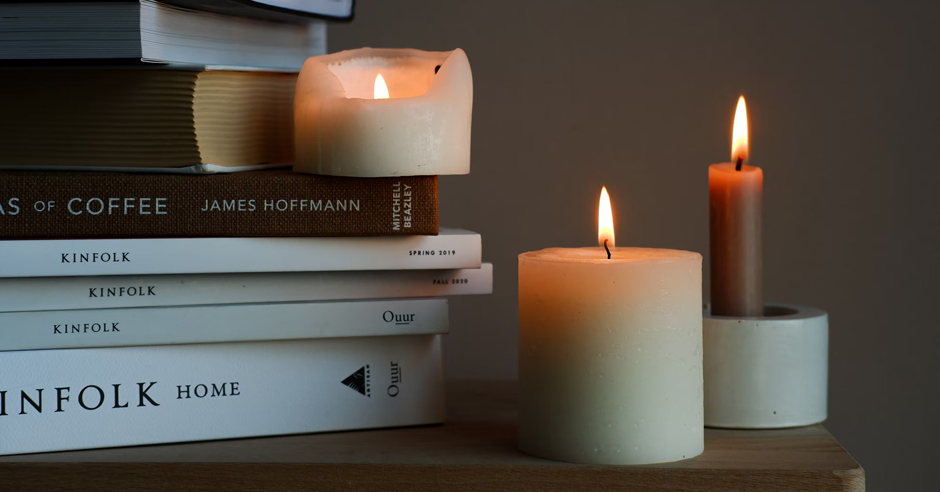
I get out of bed before my alarm goes off, stretch, shower, make a cup of tea and grab some yogurt. Then my computer is on and I’m writing, working on a new book about gratitude. I don’t take a break until almost two hours have gone by, and the time feels like it has flown. I’m energized, not depleted by my work.
I love my job as a writer, a passion I didn’t really discover until I started writing about the joys of minimalism. I enjoy working every day, even on the days when the words don’t flow as smoothly as I might wish.
What gets you out of bed, excited to begin the day?
I’m willing to bet it isn’t a new outfit or doodad for your home, or even a new car. Isn’t it more likely to be a long-anticipated event, such as a trip you’ve planned? Or an exhilarating challenge, such as the opening night of a play you’re in? Maybe you’re eager for the beginning of a new project, or for its satisfying completion. Or you could be looking forward to a visit with a much-missed loved one.
Some of those things don’t cost money. They don’t involve shopping at all. A pleasure that quickly fades, like buying a new phone or eating another meal out, will never cause you to jump out of bed in the morning.
Bertrand Russell, one of the most influential philosophers of the 20th century, struggled with depression – even contemplated suicide – as a teen. As an adult, he sought to discover the root causes of happiness and unhappiness – the factors that would either make you excited to get out of bed in the morning or not.
In his 1930 classic, The Conquest of Happiness, Russell wrote that “zest” was the common attribute of happy people. “Zest” is synonymous with enthusiasm, eagerness, and energy. To Russell, having zest for life meant being active, creative, interested in the world around you, and ready to learn new things. A sense of wonder and appreciation would add zest to a person’s life.
Does social media increase my zest for life? If not, then why should I spend so much time on it?
Does having 100 pieces of clothing in my closet increase my zest for life, or might I feel even better if I simply owned 10 flattering and comfortable outfits? If that is so, why am I spending time and money shopping for more?
Does a weekend slouched in front of televised sports increase anyone’s zest for life, or might a hike in the woods, a pick-up basketball game, a bike ride, or even the accomplishment of a few garden chores do a better job?
Does good coffee increase my zest for life? Okay, maybe it does! It might make sense to seek out the best cup of coffee for a reasonable price.
Minimalism can help you discover what really brings value to your life. When you remove the things that don’t matter, you maximize the things that are important to you. You realize that an uncluttered home, a more open schedule, and victory over debt leave you with energy, time, and money to pursue what matters to you. You may spend less time living through a screen and more time appreciating the beauties of the real world. You might even uncover talents and interests you didn’t even notice before.
You will increase your zest.
Those activities, events, and challenges that make you excited to get up in the morning will have more room to flourish because of minimalism. You will stop passively consuming retail goods or prepackaged entertainment and become actively engaged. In fact, you’ll have more freedom to give your complete attention to the things that bring you joy.
You may even experience what psychologist Mihaly Csikszentmihalyi called flow. When experiencing flow, a person is completely immersed in an activity, loses track of time, and forgets his problems. This state of happiness is triggered by concentration and is rarely possible until distractions and non-essential things are reduced or eliminated.
It sounds like minimalism can help make flow possible.
The activities that enable us to experience flow will bring long-lasting satisfaction, unlike following social media, watching another football game, or buying new shoes. We should certainly enjoy the little bursts of pleasure available from drinking iced tea on a hot day, laughing with our kids, curling up with a good book and a cup of cocoa on a rainy afternoon, watching the sunset, or kissing the people we love. But having one or two activities that enable us to use and increase our enthusiasm, talent, attention, craftsmanship, patience, and problem-solving creativity will also increase our life’s happiness.
Which activities do those things for you? Have you made time and space to pursue them?
About the Author: Karen Trefzger is a writer, singer, teacher, wife, mother, and grandmother who has been choosing a simpler life for over 20 years. She is the author of Minimalism A to Z, and blogs at MaximumGratitudeMinimalStuff.